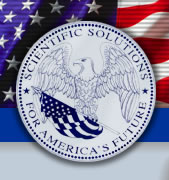 |
 |
 |
||
|
||||||||||||||||||
For further information, contactInstitute of Science, 1000 North 4th Street Phone 641-472-1200 |
Science and Your HealthA guide to some of the newest research and recommendationsFeb. 3 - Meditation and Medication The one-year study found that patients who practiced transcendental meditation lowered their diastolic pressure by 6mm and systolic pressure by 3mm, while patients who tried muscle-relaxation therapy or took conventional health education classes saw their diastolic pressure drop by only 3mm, with no change in systolic pressure. The meditators also had a 23 percent reduction in their use of hypertension medication by the conclusion of the study. Transcendental meditation involves 15 to 20 minutes of body relaxation conducted with the eyes closed. The study was funded by the National Institutes of Health. Tip: About 29 percent of the U.S. population has hypertension, though many sufferers are unaware of their condition. Doctors recommend that healthy persons have their blood pressure tested at least once every two years. Under the advice of a physician, patients who have high blood pressure may consider diet changes, exercise, medication and/or alternative therapies such as meditation. © 2005 Newsweek, Inc. |